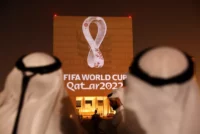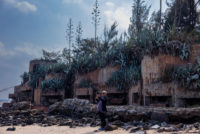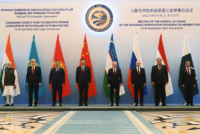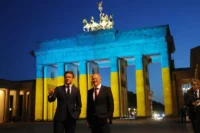
Iran Is Now at War With Ukraine
For the first time, Iran is involved in a major war on the European continent. Iranian military advisors, most likely members of the Islamic Revolutionary Guard Corps, are on the ground in occupied Ukraine—and possibly Belarus—to help Russia rain down deadly Iranian kamikaze drones on Ukrainian cities and civilian infrastructure. According to an Israeli news report citing a Ukrainian official, 10 Iranians have already been killed in a Ukrainian attack on Russian positions. Tehran is now preparing to up the ante by providing Russia not only with potentially thousands of additional drones but also, for the first time, with two types of Iranian-made ballistic missiles to supplement Russia’s own dwindling stocks.… Seguir leyendo »



















